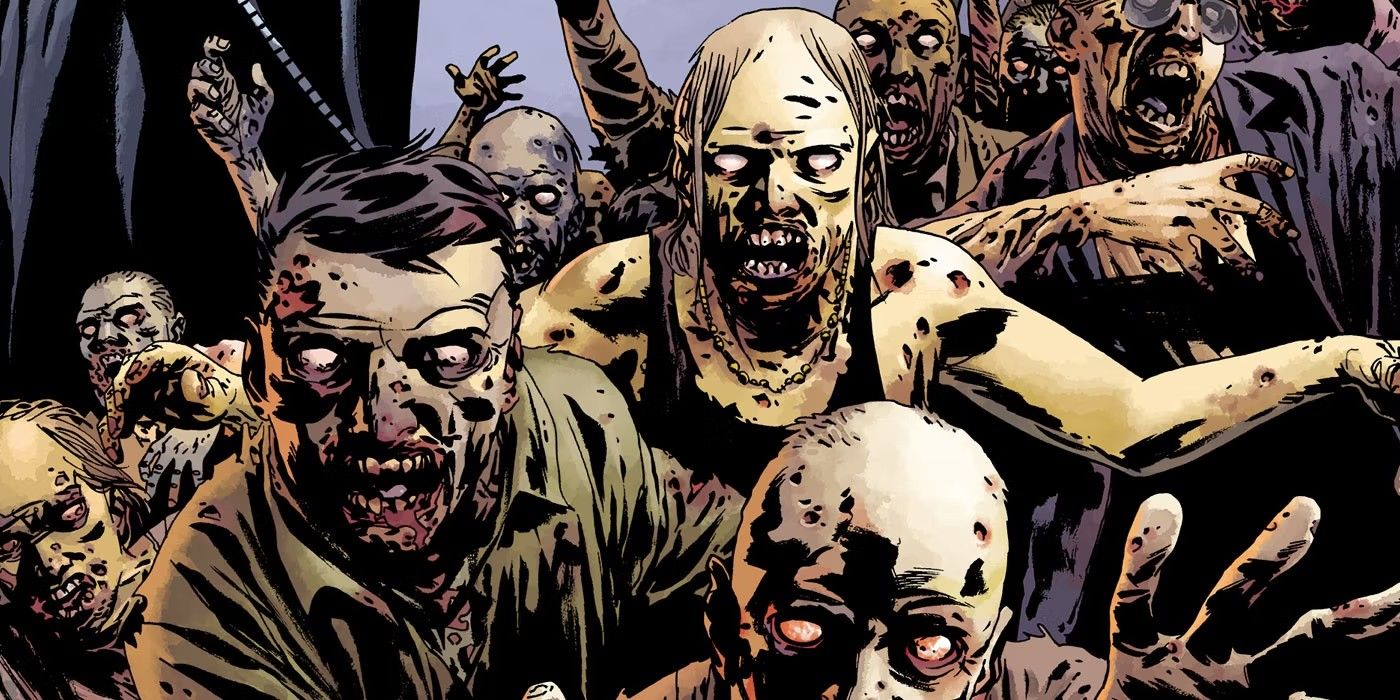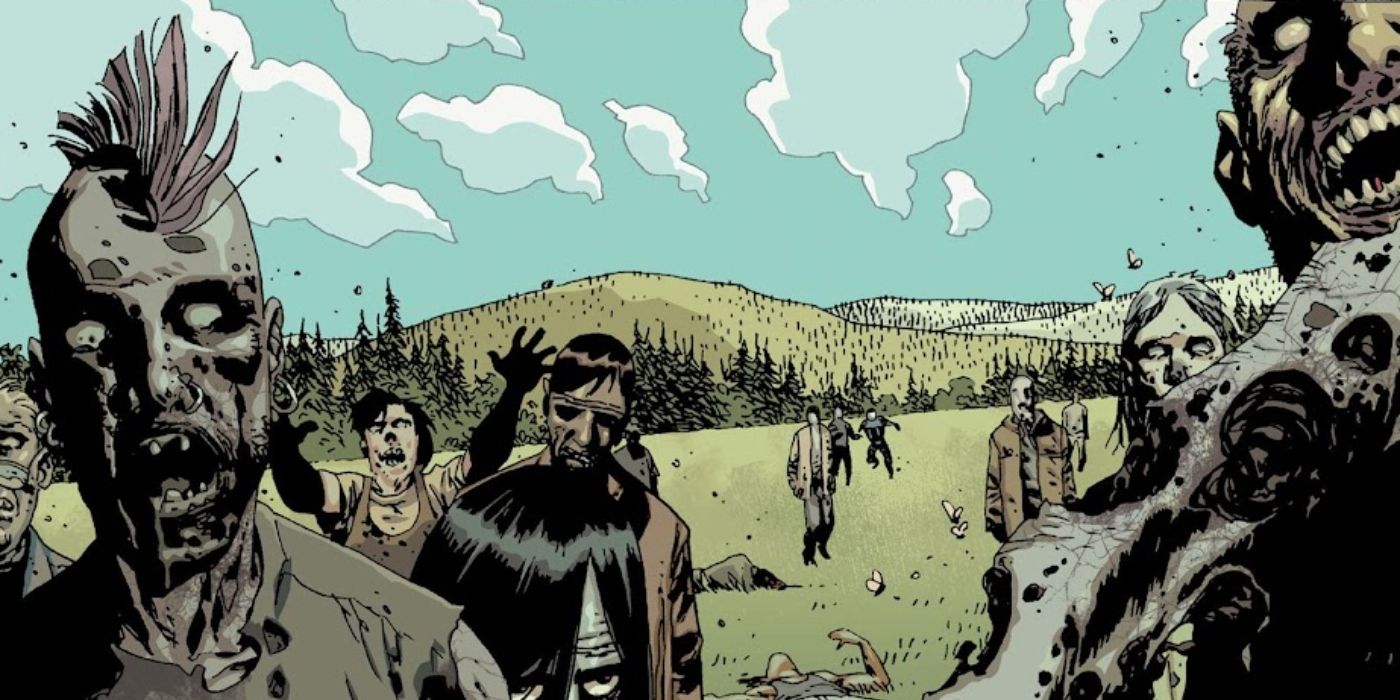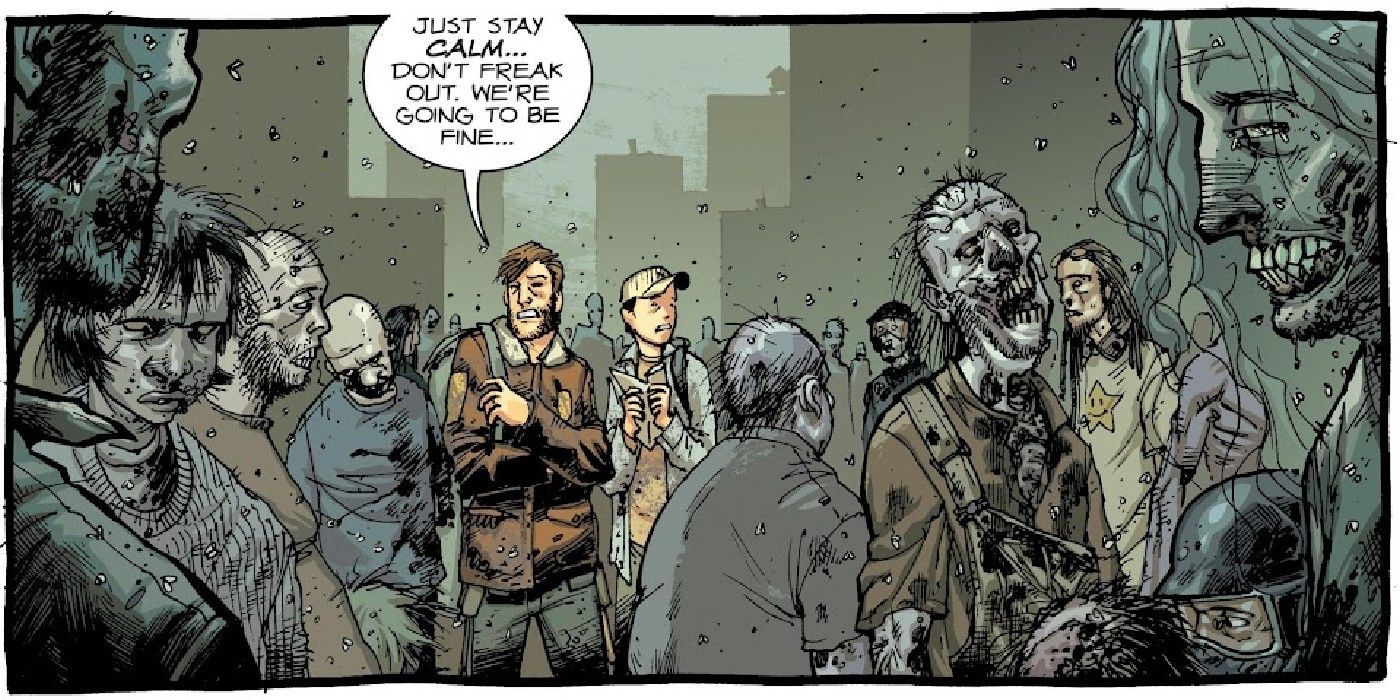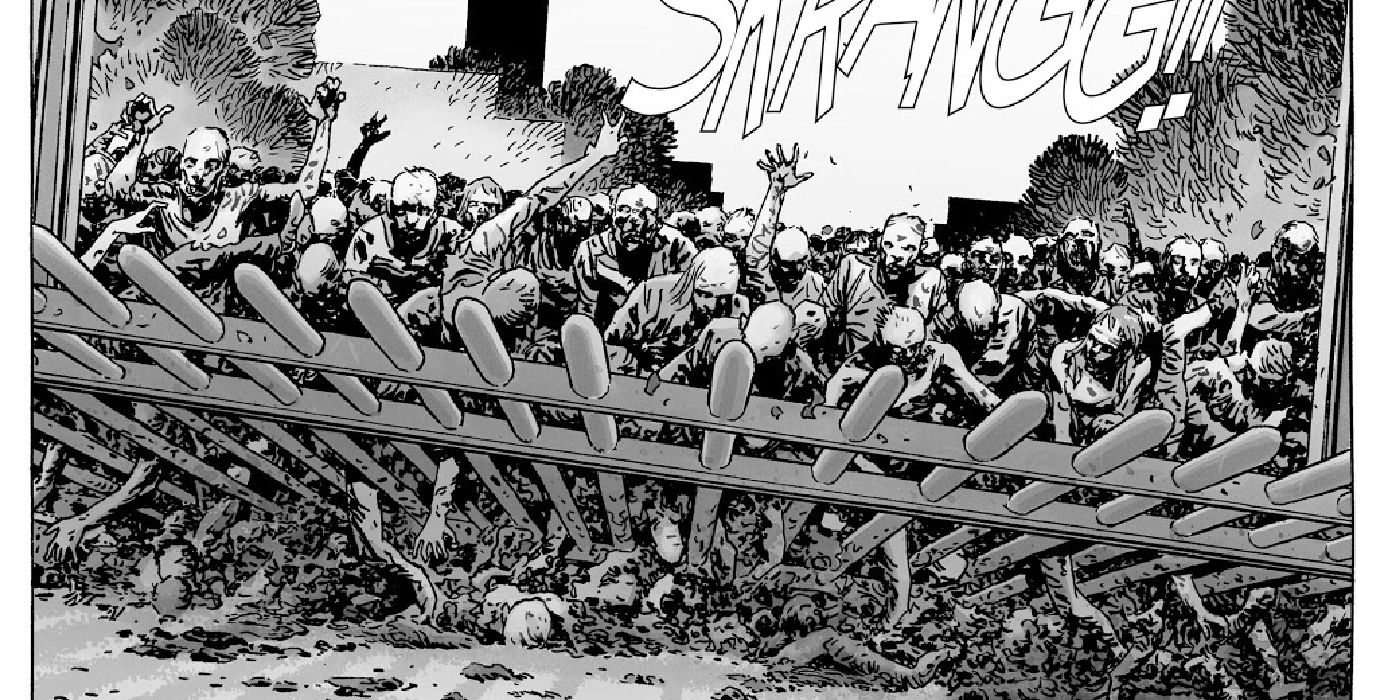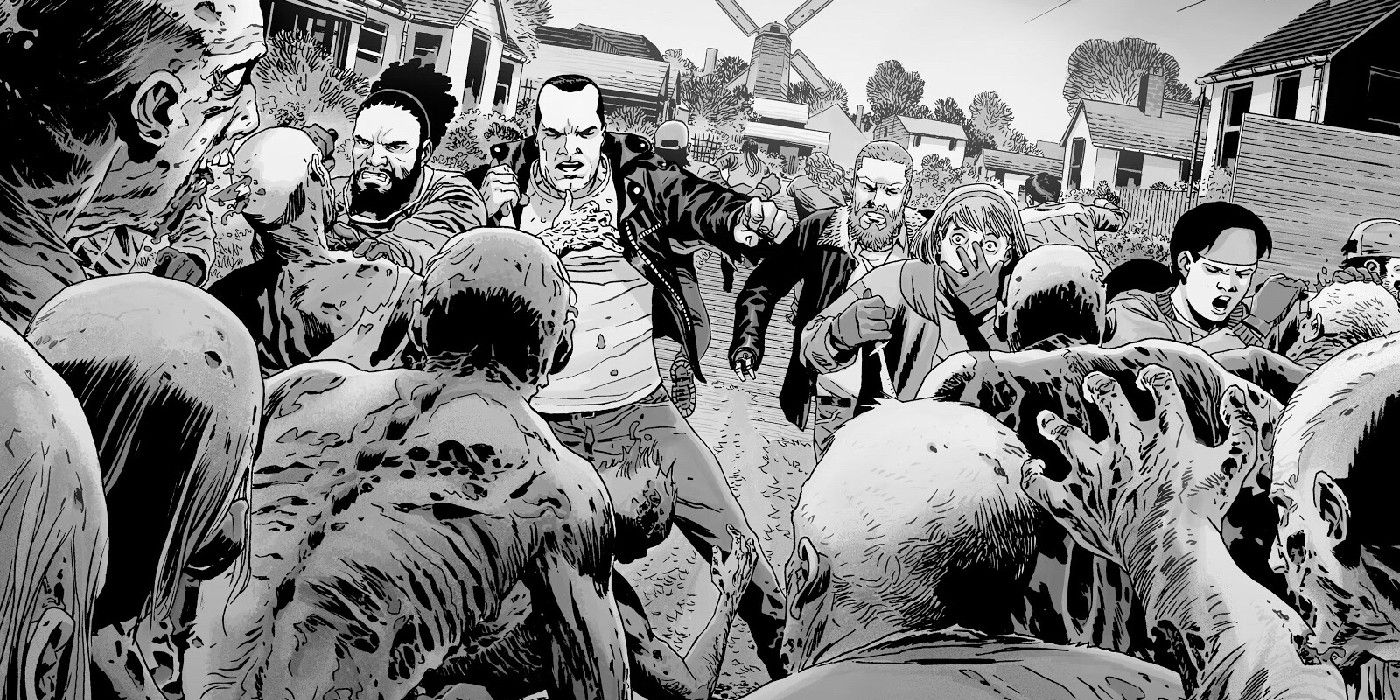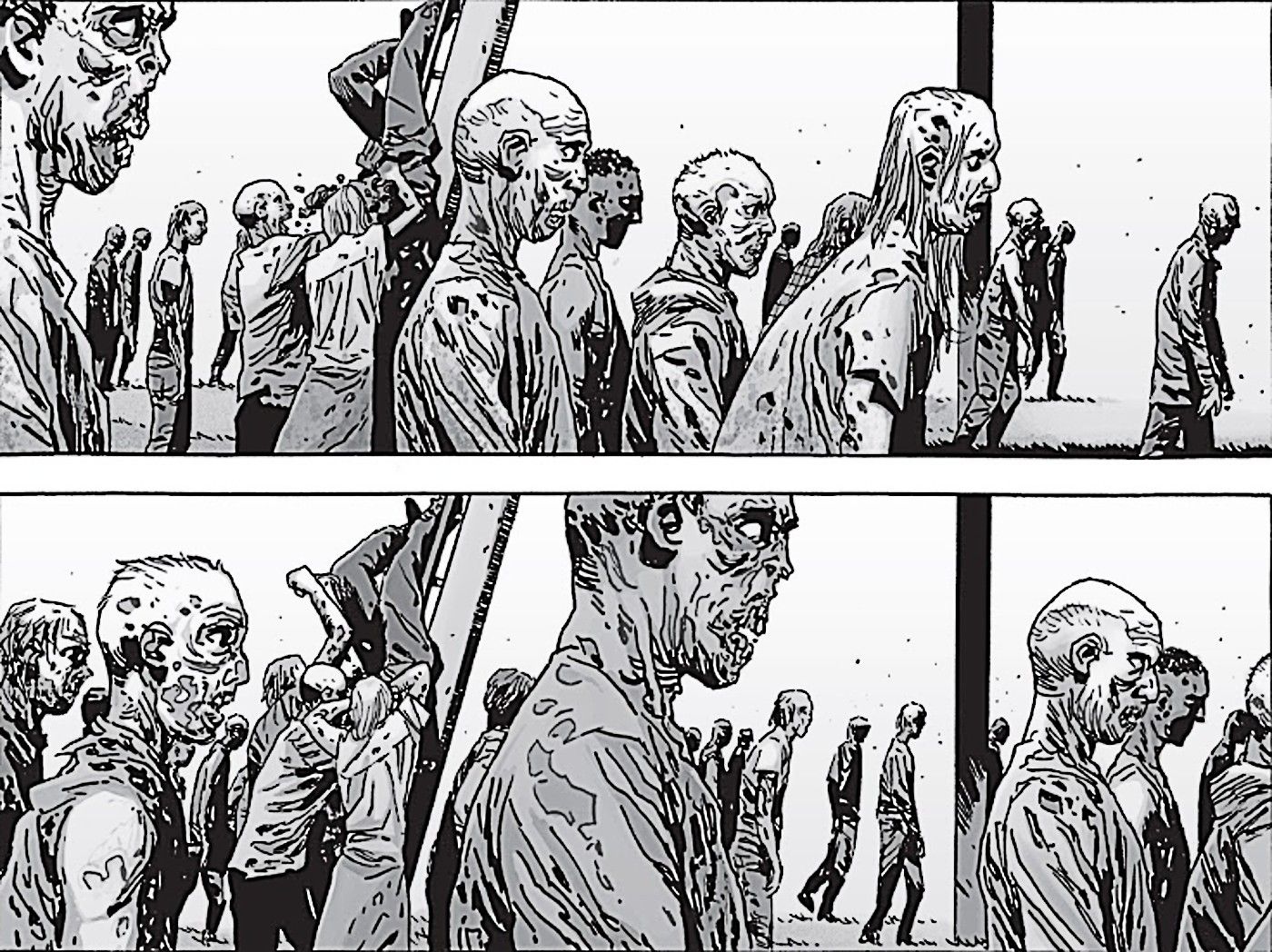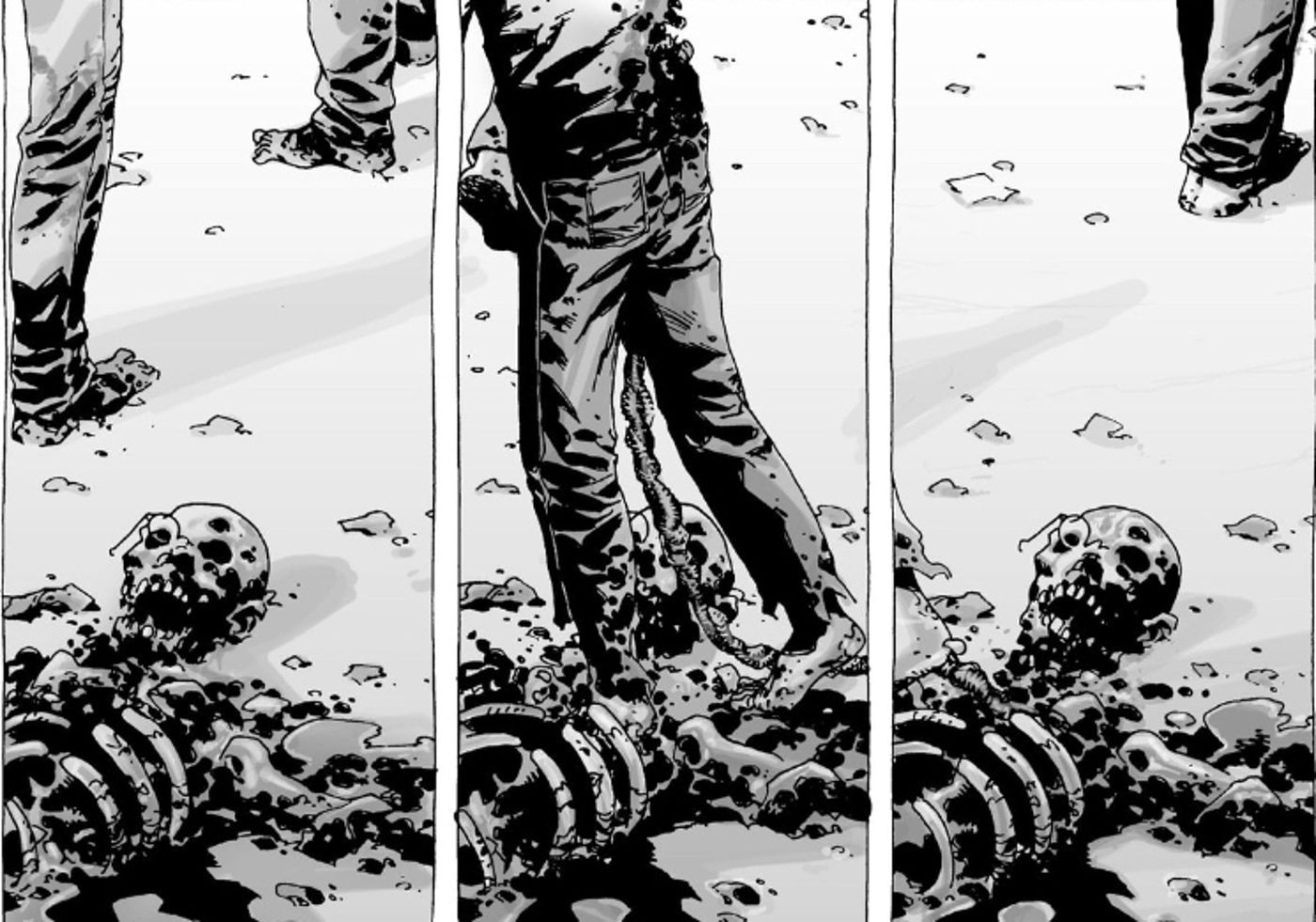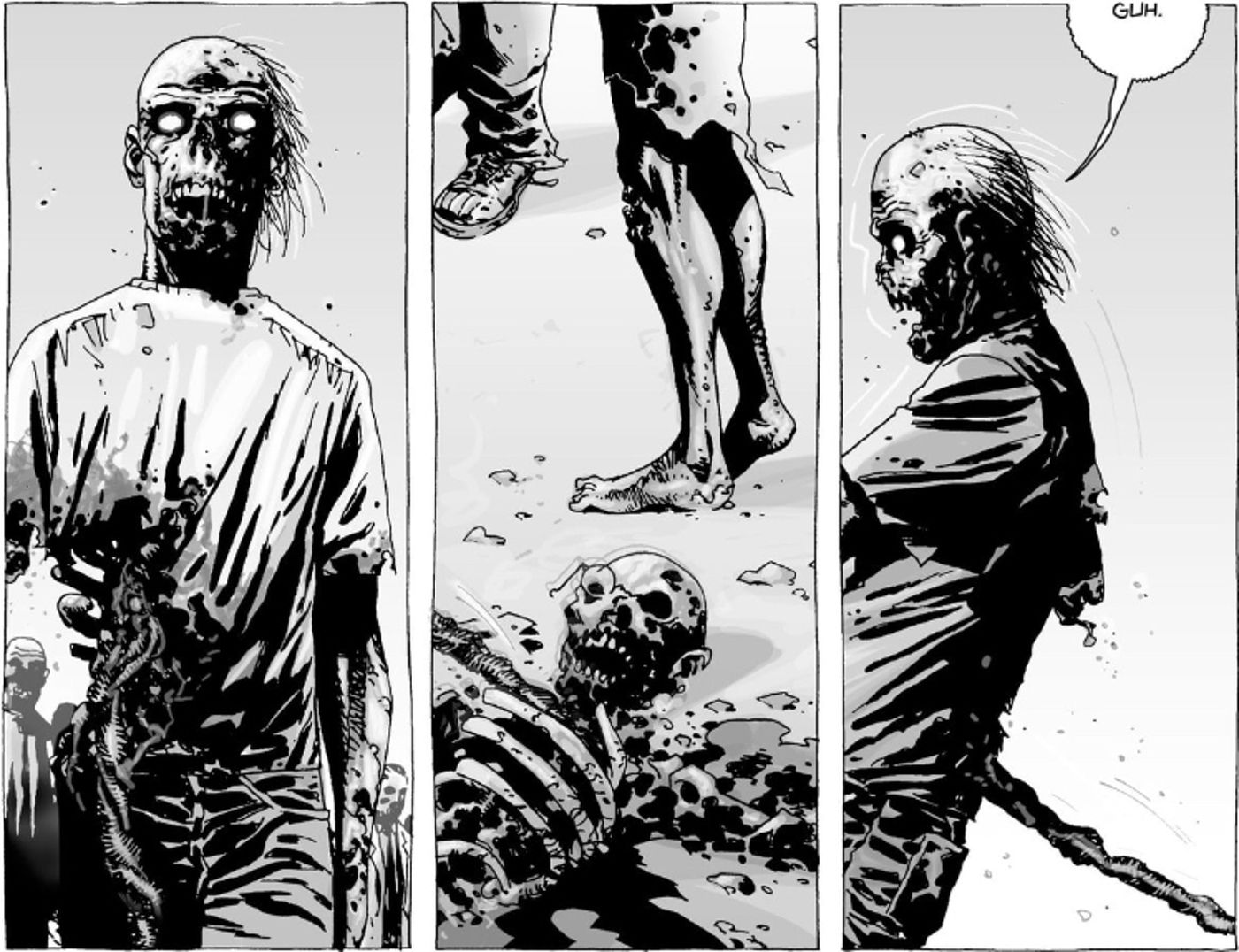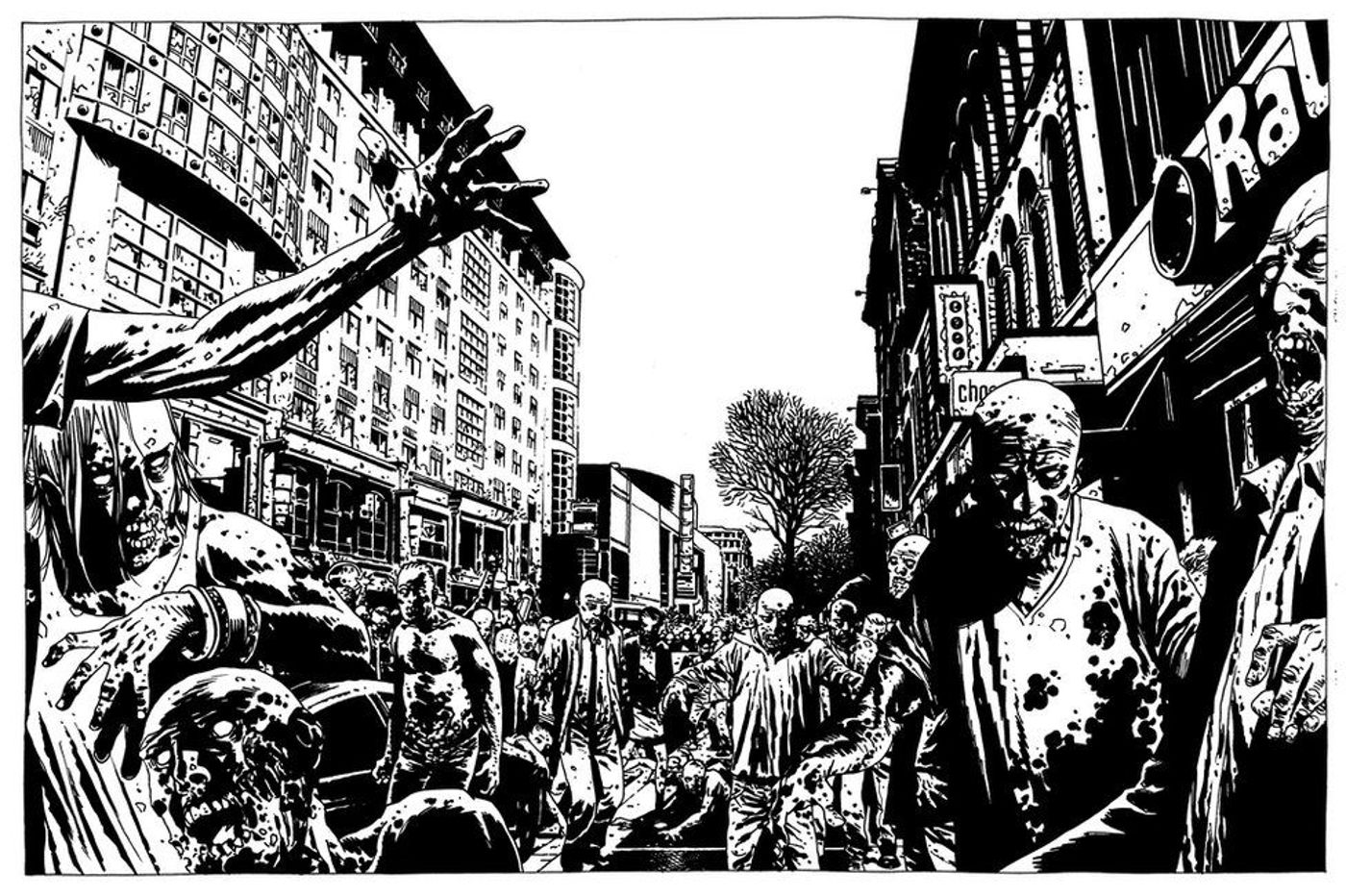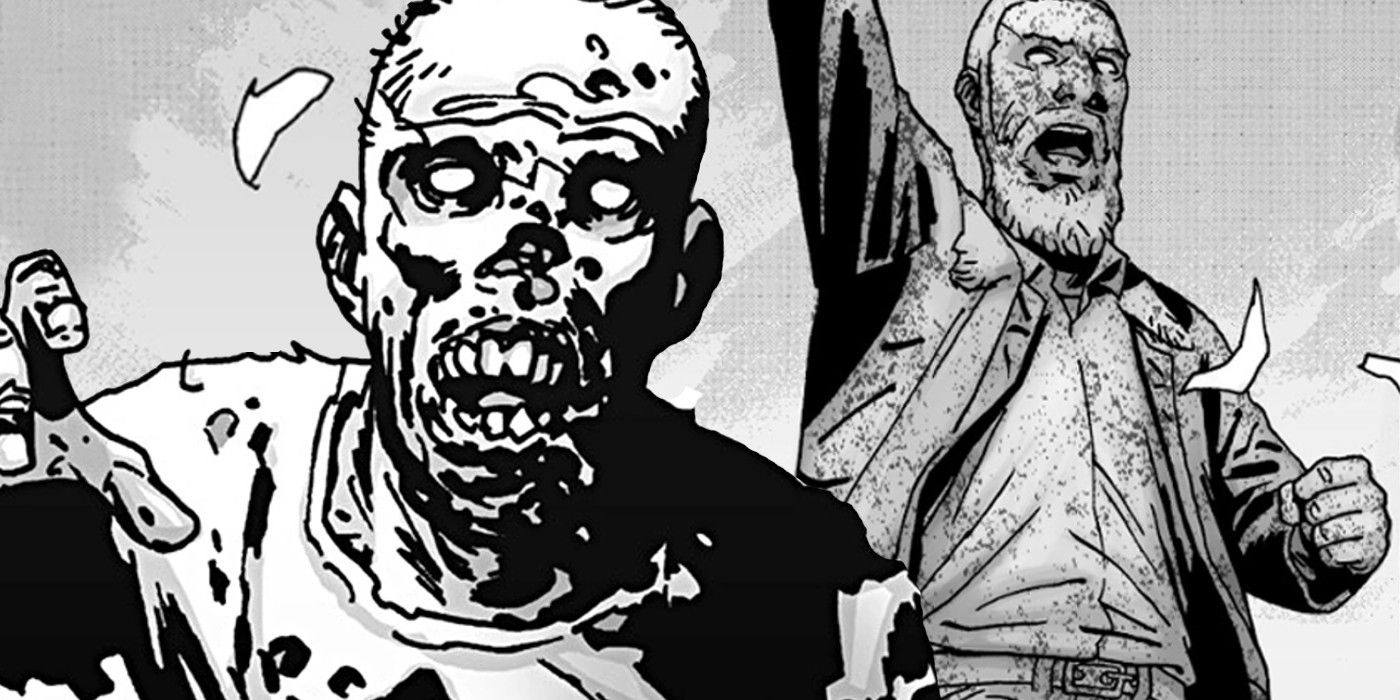Horror legend Stephen King’s 2006 novel “Cell” provides a perfect explanation for the zombie outbreak in Robert Kirkman’s Walking Dead comic.

The Walking Dead comic book series never definitively revealed the origin of its zombie plague, leaving it open to interpretation – though as Stephen King readers know, one of his more underrated 21st-century novels provided the perfect explanation for the outbreak. While King’s book and Kirkman’s comic ultimately go to very different places, their beginnings contain a lot of overlap.
Stephen King’s novel Cell featured a world in which cell phones broadcast a signal that turns anyone using one at the moment of transmission into feral killing machines, in a plot point that would be fitting for The Walking Dead.

By exploring a potential synthesis of Cell’s zombie origin and Walking Dead’s outbreak, the thematic connections between the two depictions of zombies – by a pair of horror maestros – as well as the differences in their approaches, can be brought more fully into focus.
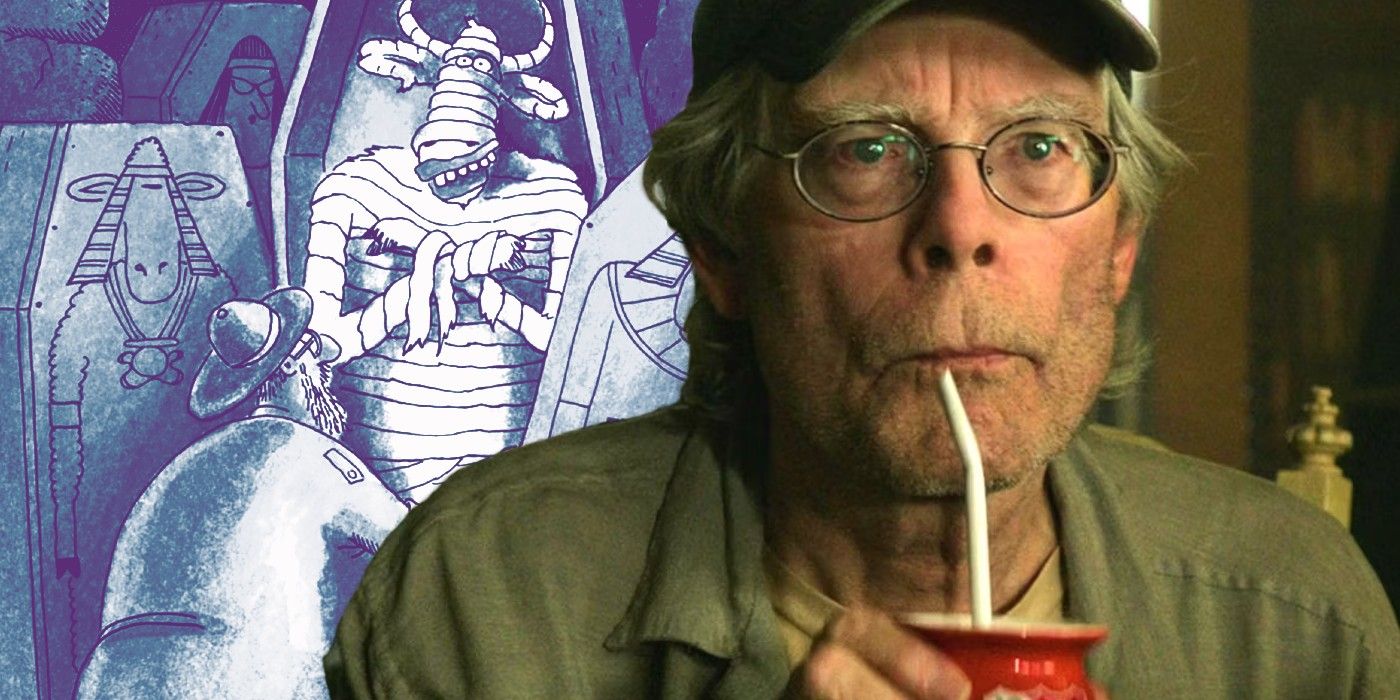
Stephen King’s Favorite Far Side Comic Shows How It Mastered Horror-Comedy
The Far Side has many celebrity fans, but Stephen King’s favorite strip shows how its horror-tinged comedy was ahead of its time.“Cell” Brutally Turned Human Technology Against Its Creators
King’s Zombie Origin Is Perfect For The Walking Dead
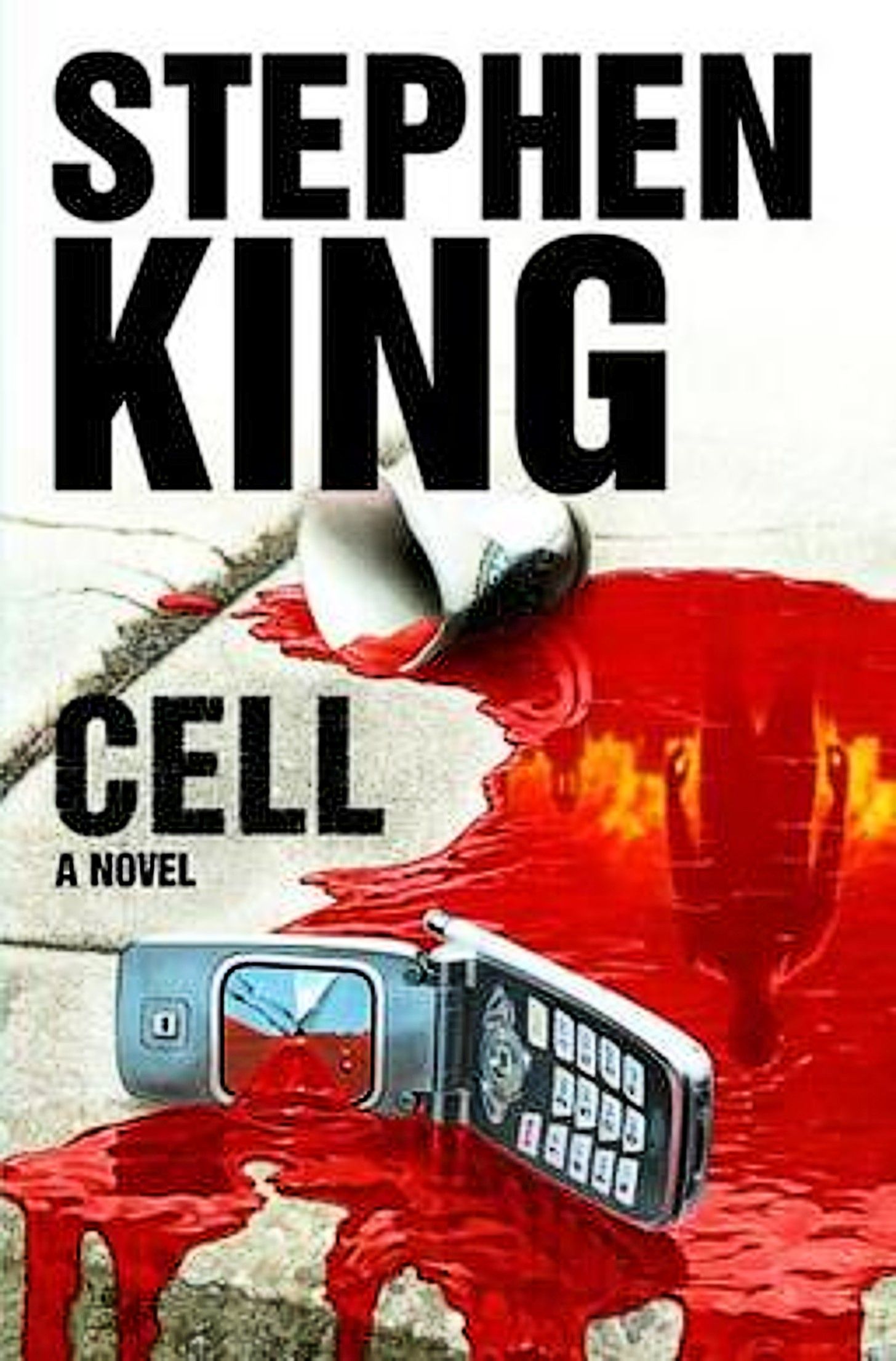
Stephen King’s depiction of the dehumanizing effects of technology is in line with Robert Kirkman’s portrayal of society immediately following Walking Dead’s outbreak.
Released in 2006, Stephen King’s Cell found the legendary author delivering his first full-fledged zombie thriller. The book came at an interesting time in zombie horror. It was the early days of what can be called a renaissance; a new generation of audiences were discovering the gory joy of the subgenre, thanks to Zack Snyder’s remake of Dawn of the Dead, and Edgar Wright’s Shaun of the Dead, both released in 2004, as well as Danny Boyle’s 2002 film 28 Days Later, and Robert Kirkman’s black-and-white comic series The Walking Dead, which began its run in 2003.
King’s book begins with “the Pulse”: a worldwide cellular signal which turns anyone using a phone at the moment of its broadcast into a “phoner.” Rather than the reanimated dead, King’s version of zombies are living humans neurologically overwritten by the mysterious “Pulse,” causing them to become aggressively violent, and incapable of higher-minded human functions, such as rational thought or communication. While the “phoners” diverge from Walking Dead’s “roamers” even further as Cell progresses, Stephen King’s depiction of the dehumanizing effects of technology is in line with Robert Kirkman’s portrayal of society immediately following Walking Dead’s outbreak.
Stephen King’s Zombie Outbreak Fits Kirkman’s Vision Of The Apocalypse
Both Stories Thematically Resonate
Rather than a biological weapon, or alien bacteria from a meteor, a technological explanation would be fitting, given Robert Kirkman’s prioritization [in The Walking Dead ] of the idea that community is essential in the fact of an existential threat to civilization.
Robert Kirkman and Stephen King use their respective versions of zombies to explore related themes, making a hypothetical connection between their work even more intriguing to examine. In Cell, King presents a direct critique of humanity’s increasing dependance on technology – something that has only rapidly escalated further in the nearly twenty years since the novel’s publication. The Walking Dead contains this same pressing concern, but alternatively approaches it by examining a civilization-threatening crisis that takes technology away from modern civilization, and demands its characters find an alternate solution to their problems.
In place of technology, the central value at the heart of The Walking Dead is the need for community and human cooperation in the absence of tech. Almost all the comic’s characters display the importance of this, even the members of its villainous factions, from the Governor’s people, to Negan’s followers, to the Whisperers. The Walking Dead reduces its characters largely to a pre-industrial state of nature – however, it continually emphasizes that humanity’s survival is not a matter of the “fittest” but of a unified effort.
Though The Walking Dead doesn’t need its zombie outbreak to be traced back to a clear genesis, Cell’s “Pulse” would be in line with its thematic goals, more than many of the other familiar origins for zombie outbreaks traditionally accounted for in the genre. Rather than a biological weapon, or alien bacteria from a meteor, a technological explanation would be fitting, given Robert Kirkman’s prioritization of the idea that community is essential in the fact of an existential threat to civilization.
King And Kirkman Each Use Zombies In Distinct Ways
To Achieve The Same Ends
A common critique of modern technology is that as it has fostered worldwide connection on an unprecedented level, individuals have paradoxically become increasingly more isolated…Both Stephen King and Robert Kirkman recognized this decades ago.
By refusing to offer a concrete explanation for the zombie outbreak – a temptation the television franchise spawned by the comic couldn’t resist – The Walking Dead sought to emphasize that the question of “how did this happen?” was less vital than the question of “how does humanity respond?” At the same time, it invoked ceaseless theorizing. Though Cell has its own mysteries surrounding “the Pulse,” its depiction of the “how” of the outbreak is evocative in the way that it envisions what technology is turning humans into.
As Cell progresses, it becomes evident that the “phoners” are not “mindless” in the sense traditionally associated with zombies, but are in fact forming together into hive minds. This makes the novel one of Stephen King’s most surprisingly prescient stories, as he crafted a potent metaphor for the dehumanizing effects of smartphones and social media just several years before such things became ubiquitous. Robert Kirkman’s more traditional zombies – rotting, reanimated corpses – might be very different on the surface, but his underlying concern that humanity needs to rediscover organic communal connections directly connects his work to King’s.
A common critique of modern technology is that as it has fostered worldwide connection on an unprecedented level, individuals have paradoxically become increasingly more isolated, and groups increasingly more sealed-off. Both Stephen King and Robert Kirkman recognized this decades ago, crafting stories that respectively sought to diagnose the problem, and offer a solution. The Walking Dead and Stephen King’sCell share a great deal of thematic DNA, making it a particularly fascinating exercise to consider how the two stories could be woven together, by adapting the novel’s “Pulse” to fit the origin of Kirkman’s zombie outbreak.
